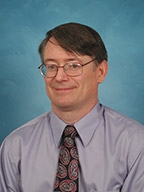Interview with Professor J. Edward Ketz, Smeal College of Business at Pennsylvania State University
Professor J. Edward Ketz, a faculty member at Penn State University since 1981, recently shared his time to answer our questions about accounting programs and advice for students. Professor Ketz has authored and edited 17 books and is frequently cited by the press on topics in accounting, finance, and business. His research focus is on the evaluation of corporate disclosures and measurements and ethical practice at the management and executive levels.
Do you think that the recent changes in the economy have impacted enrollment in accounting programs?
 Economic and social changes have definitely impacted accounting enrollments—shooting them to higher levels than in the past. These days students and their parents view undergraduate education as a certification process in which the degree serves as an entrée to some profitable position. And given the tuition levels at today’s schools, who can blame them? Going into debt (say) $50,000-$100,000 requires a plan for getting out of debt. Students and parents correctly view accounting as a degree that will allow one to throw off the shackles of this enslaving debt in a reasonable amount of time.
Economic and social changes have definitely impacted accounting enrollments—shooting them to higher levels than in the past. These days students and their parents view undergraduate education as a certification process in which the degree serves as an entrée to some profitable position. And given the tuition levels at today’s schools, who can blame them? Going into debt (say) $50,000-$100,000 requires a plan for getting out of debt. Students and parents correctly view accounting as a degree that will allow one to throw off the shackles of this enslaving debt in a reasonable amount of time.
What books or journals would you recommend to students studying accounting in preparation for a career in the field?
To prepare for an accounting career, students should focus on the accounting practitioner publications. I would recommend Accounting Today, Journal of Accountancy, and The CPA Journal. One might also view some accounting blogs and obtain a feel for some of the current debates and criticisms. I would recommend Francine McKenna’s The Auditors and Tom Sellings’ The Accounting Onion.
Are there any career assessment programs or tools you would recommend for students who are still considering their career options?
If one is still mulling over career options, the best source of advice is perhaps the college’s career counseling. In addition, one should attend any meeting in which accountants and executives come to campus. Talk with these practitioners and learn what opportunities exist.
Before earning your master’s and PhD in accountancy, you earned a bachelor’s degree in political science. Has that enabled you to bring different perspectives to your work? Are there any interdisciplinary study opportunities that you think are of particular benefit to accounting majors?
The political science undergraduate degree helped me in many ways. I learned how to read and think critically before “critical thinking” became the buzzword it is today. Such skills have been part of a liberal arts degree for decades if not centuries. The biggest help is in terms of writing. When classes require a 25 page research paper each week, one quickly learns how to write and how to organize one’s time as well as one’s thoughts. Unfortunately, both high schools and colleges have reduced writing to an insignificant amount of today’s education; consequently, many graduates have poor writing skills. Today’s students should acknowledge this reality and attempt to put themselves in writing courses.
What misperceptions about accounting or finance would you like to see corrected?
The biggest misperception about accounting is that one works alone. Furthest thing from the truth. Most of the time accounting professionals visit the client’s office and must interact not only with their colleagues but also with the client’s personnel. Working well with people is a necessary skill for accountants.
Do you have any tips to help students find grant aid or other financial support?
I have no special tips about finding financial help to attend school. I would encourage students to keep looking and ask around. There are many sources of financial support, so learn as much as you can about these sources.
The corporate culture in accounting and finance is typically highly traditional; what advice do you have for younger students for adjusting to such an environment successfully?
The first year of work can be a shock. Employers won’t cuddle you—it will be worse than having a professor unwilling to accept late work and refusing to accept any excuse for missing an exam. New hires can expect long hours, especially during busy season. I still find it amazing how many graduates hear these stories but are unprepared to make this professional commitment and what it requires of one emotionally and socially.
We extend our thanks to Professor Ketz for his time and insightful responses to our questions. If you are interested in learning more about topics in advanced accounting, you can view selected publications on Professor Ketz’s faculty page at Penn State University. You can also follow Professor Ketz on LinkedIn.
